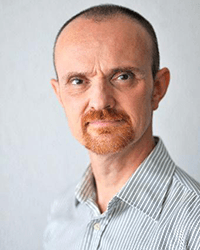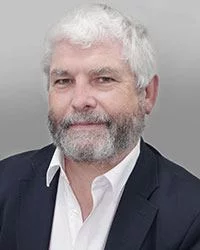What Kind of Jobs Can Facilities/Maintenance/Plant Engineers Get in the Pharmaceutical or Medical Device Manufacturing Industry?
By: Donagh Fitzgerald B.Prod Eng and Gerry Creaner B.Chem Eng. Last Updated: October 2023
The majority of roles for facilities, maintenance or plant engineers in pharma tend to be in:
- plant, maintenance or facility engineering roles both within pharmaceutical and medical device manufacturing or engineering consultancies. For these types of roles, you are probably going to need some retraining in GMP manufacturing but this is going to depend on your experience. Apart from the general “Maintenance Engineer” or “Plant Engineer” job titles, here are some typical job titles we often see advertised.
- Maintenance Systems Lead – ownership of all preventative and corrective works on plant utilities and equipment.
- Maintenance Planner – the focus is on developing the company asset maintenance program and strategy.
- Lead Utilities Engineer – manage capital projects from inception to delivery and ensure plant availability is maximised.
- Clean Utilities Engineer – ownership of clean utilities systems including purified water, water for injection, clean steam, high-quality compressed air, and nitrogen distribution.
- Facilities Engineer – ensure all preventative and corrective works on plant utilities and equipment are planned and executed.
- maintenance and design roles with engineering consultancies. GMP manufacturing experience or a relevant qualification is generally required but you may well get hired without this especially if the labour market is tight and you are a strong candidate.
- validation and qualification roles. You are probably going to need some retraining in validation and qualification. However, your background in engineering design and interpreting P&ID technical drawings is highly relevant to this field.
You would have roughly 3 broad options.
Option 1
Apply for maintenance roles with engineering consultancies or pharma or medical device companies
For a list of pharmaceutical and medical device manufacturers and engineering consultancies, click here if you are in Ireland and here if you are in the United Kingdom. For other locations, do a search for engineering consultancies for the pharma of med device sector.
You could bolster your application by taking our 6 week GMP Training Course for Beginners in the Pharmaceutical Industry and learn about the Good Manufacturing Practices (GMPs) and the risk management techniques used in the FDA regulated manufacturing environment.
Option 2
Retrain for plant engineering or facility or maintenance engineer roles in pharmaceutical or med device companies.
Pharma needs purified water and clean air systems to manufacture safe medicines which are used for injections. These aseptic processes have to be designed, validated, monitored, maintained and updated in FDA regulated manufacturing facilities.
Here, you’d need to take the following programs
Take our 18-week online Conversion Course into Engineering Roles in Pharma to learn GMPs and how safe medicines are made in a regulated environment. You will also learn the air, water and steam systems that underpin aseptic/sterile processing.
You will receive a strong grounding in the modern pharmaceutical science and engineering concepts of the environmental controls (air) and clean utility systems design that underpin an aseptic manufacturing facility and the quality systems.
Then take our 10-Week Online Starter Validation program to learn how those systems are validated.
Option 3
Retrain for validation roles in both pharmaceutical companies and engineering consultancies.
Take our 15-week online Starter Validation program and learn to populate an IQ OQ PQ Validation Protocol.
IQ OQ PQ Validation Protocols form a crucial part of pharmaceutical plant projects and having a fundamental understanding of how these protocols are put together and interpreted is a fundamental skill set of any petroleum engineer cross-training to work in this area.
Typical roles:
- Validation Technician – Some pharma companies call this role:
- Associate QA Validation Specialist
- Equipment Validation Specialist
- QA Validation Associate
- QA Validation Specialist
- CQV Specialist – Some pharma companies call this role:
- CQV Junior Engineer
- C&Q Specialist
- C&Q Junior Project Manager
With validation, CQV and C&Q roles, you could work directly for:
- pharmaceutical companies on in-house projects
- engineering consultancies as part of a project team on small to large capital projects
- engineering contractors as part of a project team on small to large capital projects
About the Author
Donagh Fitzgerald
Head of Marketing & Product Development
Mechanical/Production Engineer
Donagh looks after the marketing and product development including the training and pedagogical elements of our programs and makes sure that all GetReskilled’s users can have a great online learning experience. Donagh has lived and worked in many countries including Ireland, America, the UK, Singapore, Hong Kong and Japan. Donagh has also served as the Program Manager for the Farmleigh Fellowship based out of Singapore.
Donagh holds Degrees in Production Engineering and Mechanical Engineering from South East Technological University, Ireland.
Gerry Creaner
President
Senior Lecturer with GetReskilled
Gerry Creaner has over 40-years of experience in the Life Sciences Manufacturing industry across a range of technical, managerial and business roles. He established a very successful engineering consultancy prior to founding GetReskilled, an online education and learning business, with offices in Singapore, Ireland and Boston (USA), focussed on the manufacture of safe and effective medicines for the public.
He is also a founding Director of two Singapore based philanthropic organizations, the Farmleigh Fellowship and the Singapore-Ireland Fund, both of which deepen the well established and historical Singapore – Ireland relationship and deliver long-term benefits to both countries.
Gerry has an undergraduate degree in Chemical Engineering (UCD, 1980) and an MSc (Management) from Trinity College Dublin (2003) and is currently doing research for his Ph.D.

